#Knockan Crag
Explore tagged Tumblr posts
Text
North Coast 500.
From Ardmair to Knockan Crag. 2021.
Heading eastbound from Ardmair, the next stop was Knockan Crag. This is a route much travelled by camper vans and motor homes. Despite the occasional narrow one track roads there are plenty of good passing places and as the visibility is excellent it’s a very easy route to drive even in a camper van . And once you arrive at Knockan Crag there is a very good parking place with drinking water and toilets, as well as a lot of information panels and a well preserved walking route up the hillside giving great views over the Lochie and across the countryside.
There are also Red Deer there. I was lucky enough to see a reasonably family group not too far away. I’m sure they are used to people as they clearly saw me but didn’t run off scared.
Below are some of the photos I took at Knockan Crag that day.


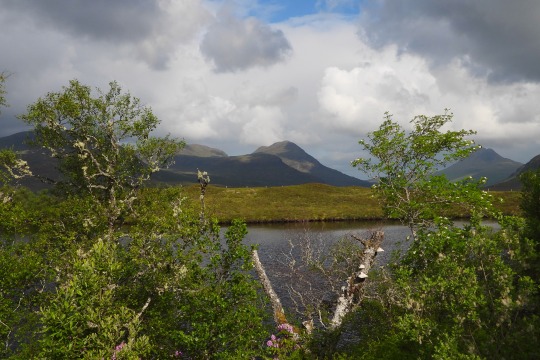
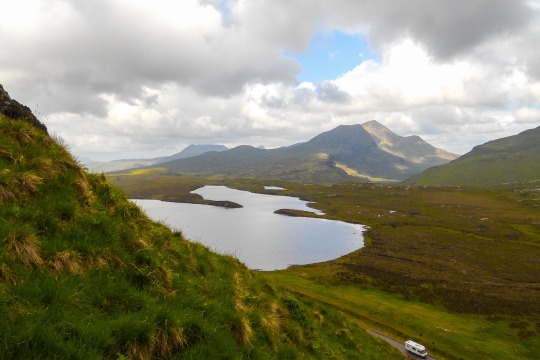

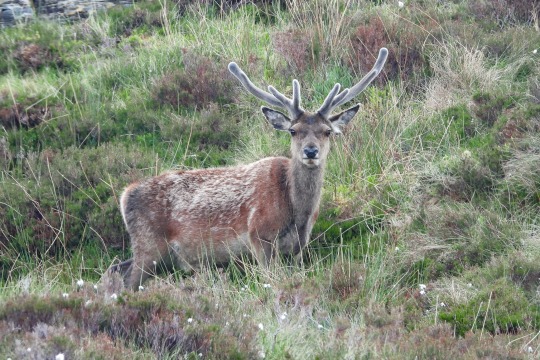


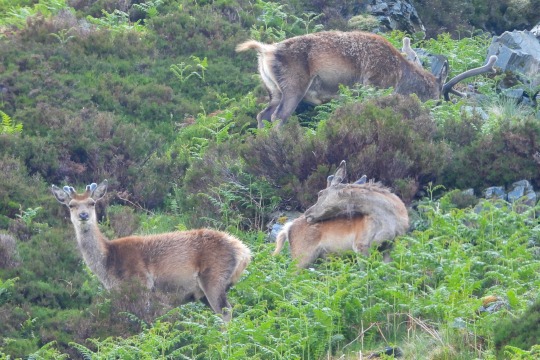
#nature#wildlife#red deer#scotland#mountains#scenic views#mountain views#tourism#beauty#Scottish wildlife#Knockan crag#hiking#camper van#camping
0 notes
Text

‘The Globe’ sculpture by Joe Smith, Knockan Crag National Nature Reserve, Scotland
41 notes
·
View notes
Text

Knockan Crag National Nature Reserve
0 notes
Text

Knockan Crag National Nature Reserve
0 notes
Text

Knockan Crag National Nature Reserve
0 notes
Text
Travelling the NC500

The next stage of our adventures: McScotland and the NC500 https://touringcook.com/wp-content/uploads/2022/11/314732041_5581669028585550_5175195616818070155_n.mp4 Disclosure: some of the links on this site are affiliate links. This means that at no additional cost to you I may earn a small commission if you click through and make a purchase. In addition, as an Amazon Associate, I earn from qualifying purchases.
The Detail
Distance Travelled: 1720 miles in 26 days Expenses: Fuel £502; LPG £15; Site Fees/Parking £119; Groceries £504; Laundry £38; Eating Out £120; Stopovers: Castle Caerlaverock; layby on the A711; Wigtown; Ayr; Loch Lomond; Ben Nevis; Loch Ness; Tain; Golspie; Keiss; Castletown; The Wind Farm; Sherry Harbour; Durness; Kylesku; Layby on the A837; Falls of Shin; Knockan Crag; Ullapool; Kinlochewe; Skye; Portree; Clashwoods; And we're off! In October 2021 we were finally ready to start our motorhoming adventures. Although we had been living in a caravan pitched on the beach at Blackpool Sands, and laterly in Lottie, our motorhome, we hadn't actually gone any distance until our trip to McScotland. This was our first experience of actually travelling around in Lottie, and it was a much steeper learning curve than we imagined. Leaving Devon early in October we meandered up the West coast of the UK. I talked about this part of our trip in a previous post - “The Journey Begins”. Arriving in McScotland on the 8th of October we started making our way toward Inverness as it's a great starting point for the NC500, whichever way around you wish to go. We decided to go anti-clockwise as we were fairly new to driving around in such a large vehicle and wanted to have a bit more time on the larger roads before tackling some of the narrower ones on the West coast.

McScotland here we come

NC500: Travelling Companions

NC500: Surveying the scene Previous Next

NC500: Riverside Parking

NC500: Frying Scotsman Read the full article
0 notes
Photo

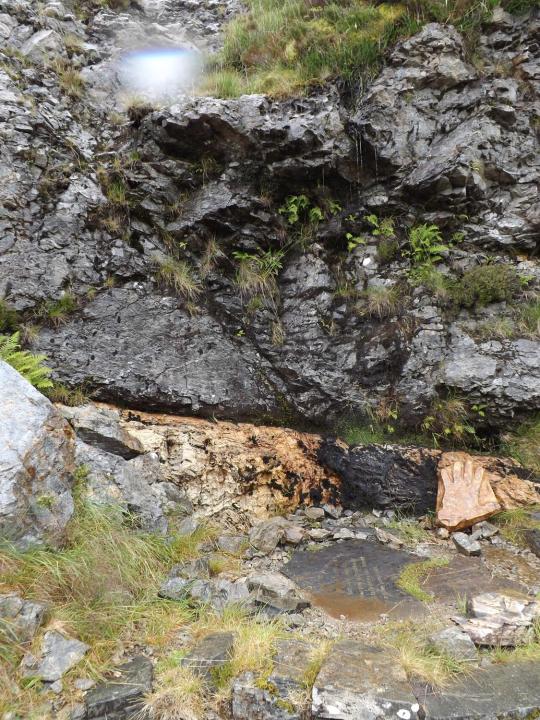
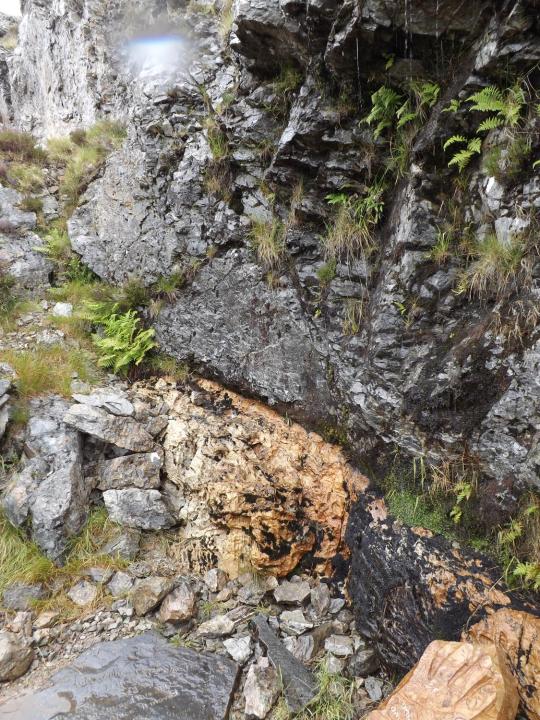

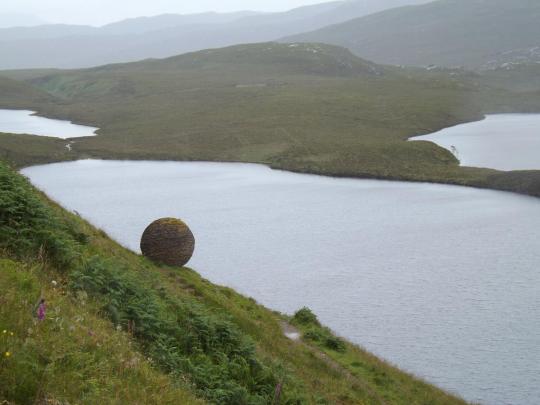


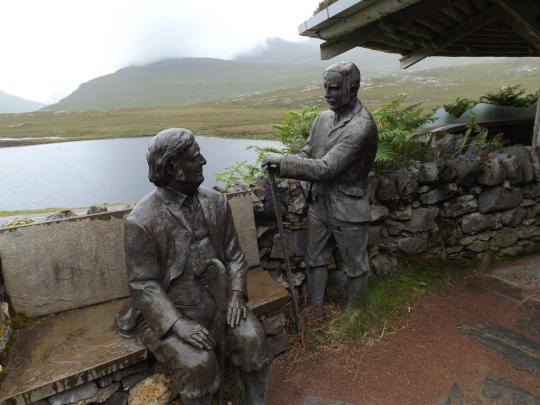
Rock Facts: The Mystery of Knockan Crag
In the late 19th century, a discussion arose in the geology community. It had been observed at Knockan Crag - a cliff in the Northwest Highlands, beside the road between Ullapool and Lochinver - that the rocks at the top seemed to be older than those below, with the Neoproterozoic Moine Schists lying above the Ordovician Durness Limestone. This turned out to be a topic of much controversy; while most people had long since moved on from the diluvial hypothesis, accepting that no, the rocks we see today were not all laid down in the single Biblical flood, the (fairly logical) idea that Younger Rocks Are Always Above gave rise to a couple of different schools of thought. Firstly: the Moine Schists were younger, they’d just been misidentified. Secondly: they actually were older than the rocks below and summin’ weird was afoot.
Enter British Geological Surveyors Ben Peach and John Horne. That’s them in the statue, though I’m not sure which is which. They carried out a long-term detailed mapping project of the area and, eventually, proved conclusively that the difference in age was due to tectonic activity: the older rocks of the Moine Schists had, over millions of years, been shoved up and over the younger rocks of the Cambrian/Ordovician succession in what’s now called the Moine Thrust, one of the first thrust faults to be identified.
Surveying techniques have come a long way since Peach and Horne and we now know that the Moine Thrust itself is just one part of a series of thrust faults running right through the Northwest Highlands from Loch Eriboll in the north to the eastern tip of the Isle of Skye. But in honour of that first identification, the whole complex is referred to as the Moine Thrust Belt.
I spent two weeks on a geological mapping trip based out of the Inchnadamph Field Centre at the end of my second year of university. I am extremely familiar with the rocks of the area.
326 notes
·
View notes
Text
Scotland 2019
Here's the trip diary of our recently completed "Scotland: Birth of Geology" tour – read about our visit to the world’s most important historic geological sites
Scotland: The Birth of Geology
In July 2019 we led our Geology of Scotland tour for the fourth time. Scotland has incredibly diverse geology – it was here that the enormity of geological time was first envisaged, the first attempts to measure the mass of the Earth were made, Thrust Faults were discovered and middle Jurassic Dinosaurs roamed.
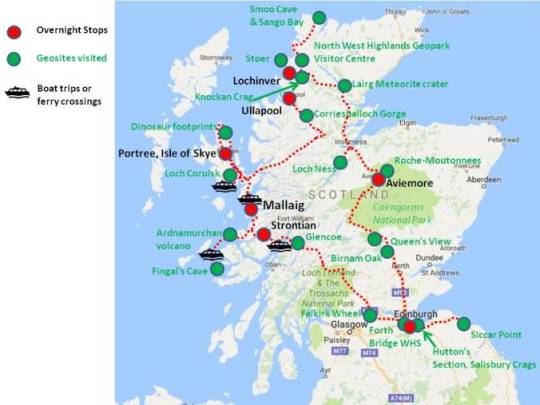
GeoWorld Travel’s ‘Scotland: The Birth of…
View On WordPress
#Assynt#Cuillin#Dinosaurs#Edinburgh#Gabbro#geology#Glencoe#Isle of Skye#Knockan Crag#Moine Thrust#North West Highlands Geopark#Salisbury Crags#Scotland#Siccar Point#Staffa#Strontian#Strontium#volcano
1 note
·
View note
Photo

Knockan Crag trail, Scotland.
© GoWeeFurther
#Scotland#Knockan Crag#GoWeeFurther#scottishhighlands#nc500#travels#hillwalking#trail#summer#northcoast500
0 notes
Video
Knocken Crag Sunset 04-04-18 (2) by John Dunlop
32 notes
·
View notes
Text
And on to Scourie Bay.
After Knockan Crag, our route took us further eastwards to wards John o’ Groats and our next stop, Scourie Bay along the North Coast 500 route.

A few miles from Knockan Crag we came to another popular tourist destination. Leaving the camper van we headed off to see the site of the caves where Stone Age remains have been found. We passed this waterfall on the way. The next shot is of the caves.

You can see the caves at the bottom of the rock formation above.
Then we were back on the road, heading to Scourie Bay.
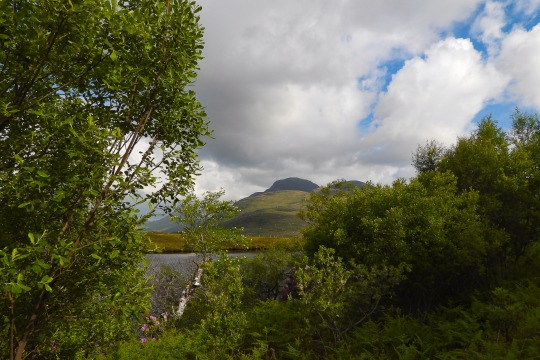


#nature#mountains#waterfalls#caves and cliffs#history#stone age#countryside#scotland#north coast#tourism
0 notes
Text

‘The Globe’ sculpture by Joe Smith, Knockan Crag National Nature Reserve, Scotland
18 notes
·
View notes
Photo

nichbrand
View from the 'Globe' towards Lochan an Ais at the Knockan Crag National Nature Reserve, Scotland
10 notes
·
View notes
Link
Through the Global Tectonics and the Rock Cycle course and the Field Skills for Geologist course I visited the wonderful parish of Assynt. Assynt is a geological wonder, with friendly people, great beaches and breath taking landscapes. I am extremely thankful for the University of Edinburgh for taking me there. In Assynt I practiced my geological field skills such as Triangulation on a map, measuring dip & dip direction of beds and taking accurate & comprehensive field notes. I visited many wonderful localities such as Knockan Crag, the outcrops at Loch Assynt and the Imbricates next to Ullapool. I geologically mapped the area north of Loch Assynt and the Imbricates section east of Ullapool. Outside of my geological work I visited the wonderful porcelain factory, Highland Stoneware, strolled down the many beaches on Assynt’s coast and sampled the taste of local pies. I spent two good weeks in the region. I hope reading about my adventure will delight you as much as being in the region delighted me.
1 note
·
View note
Text
Travelling the NC500

The next stage of our adventures: McScotland and the NC500 https://touringcook.com/wp-content/uploads/2022/11/314732041_5581669028585550_5175195616818070155_n.mp4 Disclosure: some of the links on this site are affiliate links. This means that at no additional cost to you I may earn a small commission if you click through and make a purchase. In addition, as an Amazon Associate, I earn from qualifying purchases.
The Detail
Distance Travelled: 1720 miles in 26 days Expenses: Fuel £502; LPG £15; Site Fees/Parking £119; Groceries £504; Laundry £38; Eating Out £120; Stopovers: Castle Caerlaverock; layby on the A711; Wigtown; Ayr; Loch Lomond; Ben Nevis; Loch Ness; Tain; Golspie; Keiss; Castletown; The Wind Farm; Sherry Harbour; Durness; Kylesku; Layby on the A837; Falls of Shin; Knockan Crag; Ullapool; Kinlochewe; Skye; Portree; Clashwoods; And we're off! In October 2021 we were finally ready to start our motorhoming adventures. Although we had been living in a caravan pitched on the beach at Blackpool Sands, and laterly in Lottie, our motorhome, we hadn't actually gone any distance until our trip to McScotland. This was our first experience of actually travelling around in Lottie, and it was a much steeper learning curve than we imagined. Leaving Devon early in October we meandered up the West coast of the UK. I talked about this part of our trip in a previous post - “The Journey Begins”. Arriving in McScotland on the 8th of October we started making our way toward Inverness as it's a great starting point for the NC500, whichever way around you wish to go. We decided to go anti-clockwise as we were fairly new to driving around in such a large vehicle and wanted to have a bit more time on the larger roads before tackling some of the narrower ones on the West coast.

McScotland here we come

NC500: Travelling Companions

NC500: Surveying the scene Previous Next

NC500: Riverside Parking

NC500: Frying Scotsman Read the full article
0 notes


